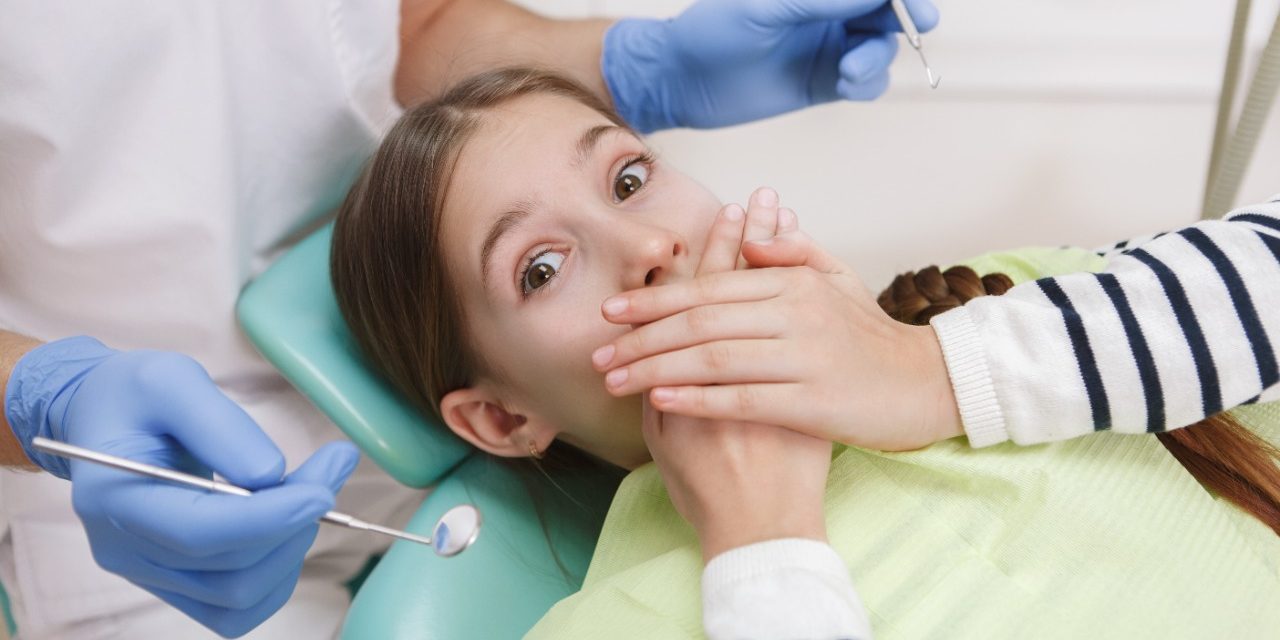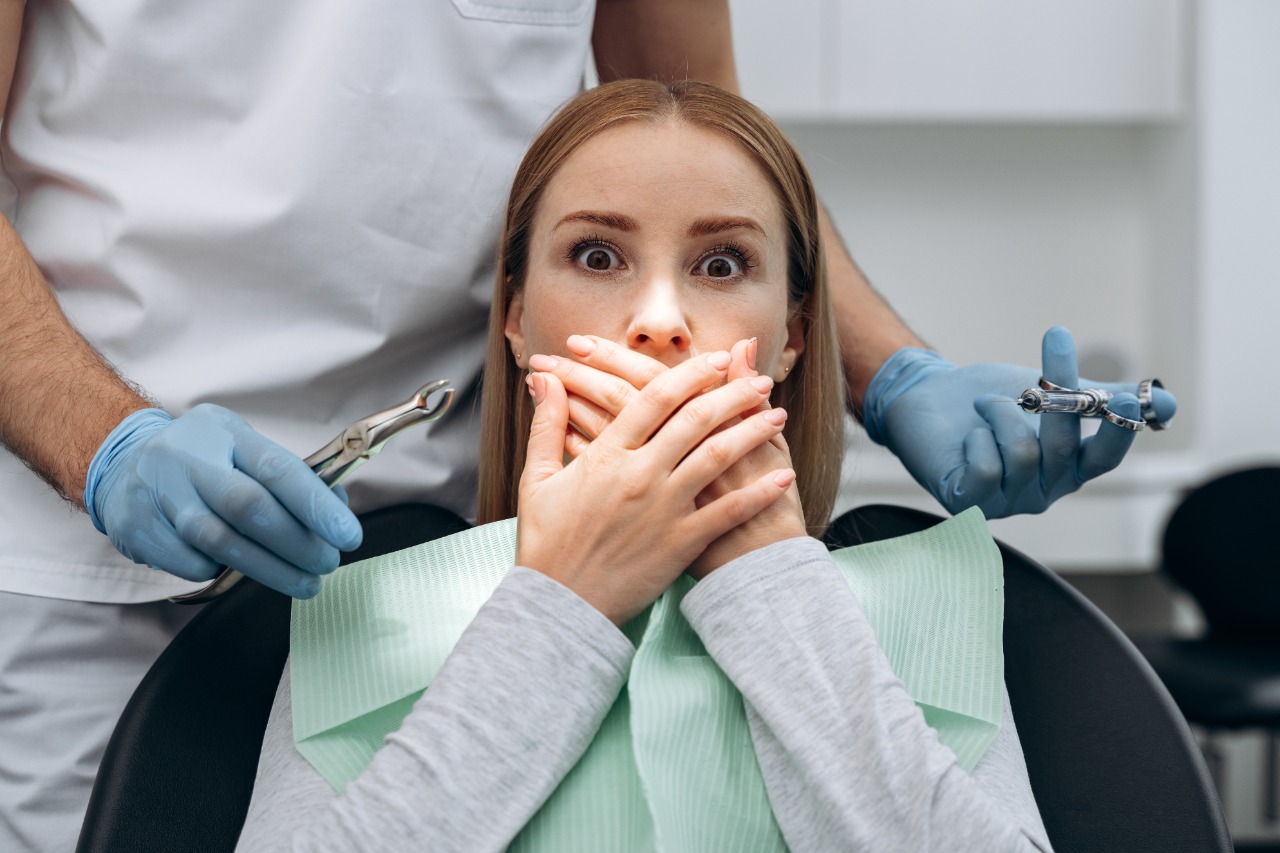Have you ever faced any oral health issues? Have you ever visited a Dentist? Ever felt scared by seeing the dental equipment? Obviously yes! Everyone would have faced some or other oral problems like sensitivity, cavities, gum diseases, bad breath, cracked teeth, or at least mouth ulcers. These are a few common oral issues that everyone faces at some point in their life. Visiting a dentist is also very common when you find an oral problem. Let it be your first or 10th time; you will still get tensed by seeing dental equipment like needles, drills, scalers, or any other dental instruments. Fear, anxiety, and sometimes depression are common for a dental chair. There is nothing to worry about if you are scared, depressed, or anxious during your dental visits, many people would have experienced the same at some point of their visits. Some people avoid dental sittings because of these factors, which can be a wrong step. Avoiding dental visits can lead to many oral problems. In this article we will learn on tips to manage your dental anxiety, its symptoms and alternative treatment.
Here is a list of oral issues that can affect you if you don’t visit your dentist:
- Gum diseases
- Tooth decay
- Bad breath
- Tooth loss
- Infected tooth
- Discolored teeth
Here is the main point to note that your health conditions are related to oral health. It all depends on the hygiene and care you take.
Poor oral hygiene and avoiding dental visits can affect not only your oral health but also few health conditions like
- Heart diseases
- Diabetes
- Lung infections
- Breast cancer
Dental Anxiety
Dentophobia or Dental Anxiety is a term that refers to the patients who are scared, anxious, and depressed about their dental visits, which results in avoiding or delaying dental visits. This is a very common symptom and can affect any age group.
Common causes of Dental Anxiety
Fear of pain: Though many oral procedures are painless, most of us fear pain by seeing and thinking it hurts. Some people get influenced by listening to other people or watching a movie or videos and imagining that dental visits are painful, which can lead to delaying or avoiding dental chairs.
Traumatic dental experience: Some people may also have dental anxiety due to the unpleasant experience during dental chairs.
Embarrassment: Are you thinking of how embarrassment leads to dental anxiety? Here is an explanation: People with dental problems like tooth decay, discolored teeth, or damaged teeth might feel embarrassed about the condition of their oral health or oral hygiene and feel embarrassed to open up.
Dental equipment: Most of us would be afraid of a syringe, and when we know it will be injected inside our mouth, it makes it feel even worse. This is the reason why dental equipment like needles, scalers, drills, etc., leads to dental anxiety.
Other causes for dental anxiety include
- Loss of control
- Side effects from anesthesia
- Post-traumatic stress disorder
- Head or neck injury
Symptoms of dental anxiety
- Sweating
- Increased heartbeat
- Low blood pressure
- Fainting
- Discomfort
- Difficulty breathing
Tips and Other Dental Options to Manage Your Dental Anxiety
Here are a few tips to follow if you fear dental chairs
- If it is your first time visiting a dentist, then avoid going alone
- Try diverting yourself by watching movies or listening to music will help you stay calm
- Take a deep breath or practice meditation to relax your muscles
- Share your fear with the dentist
- Choose your dentist wisely. Visit a dentist who has more patience to listen and understand your issues
- Take precautions
- Be familiar with the dental equipment
- Feel free to take breaks
- Ask questions, feel free to ask your dentist about the tools and their procedure
- Ask for other dental options
Following these tips to manage your dental anxiety, and depression for dental chairs and can make you feel comfortable in visiting.
If you are following all the tips to manage your dental anxiety and if you are still failing, then no problem. There are many other options for people who have dentophobia, which can help in following the dental procedure without any further problems. You can choose other dental options to follow the procedure.
- Inhalation sedation: Inhalation sedation is the most common type of sedation, where the inhalation of nitrous oxide, also known as laughing gas or happy gas, is used to continue the dental measures.
- Oral sedation: Oral sedation, also known as pill sedation, the patients with dentophobia are given a pill which can be taken an hour before the procedure, this type of sedation will help patients to calm down during the dental procedures.
- IV sedation: IV sedation also known as monitored anesthesia, or conscious meditation, is a type of anesthesia, this method of sedation involves receiving the medication through a tube placed in a vein.
- General anesthesia: General anesthesia is also another type of medication given in a way to manage dental anxiety. Patients opting for general anesthesia have a complete loss of consciousness, where the patients are unable to hear, feel, or remember the dental procedure.
Conclusion
Avoiding dental chairs can lead to decay, gum diseases, discolored teeth or any other dental or oral problem. Dentophobia is nothing but Dental Anxiety which is very common for many of us. There are many who are afraid, anxious or depressed because of the dental chairs. But just because of the anxiety, fear, or depression we can’t avoid the regular dental checkup, it is a vital component in our life. There are many other options to continue the dental procedure. Positive dental is one of the best and the leading dental clinics in Hyderabad to treat all kinds of oral problems for everyone without any risk of side effects. To book an appointment click here


